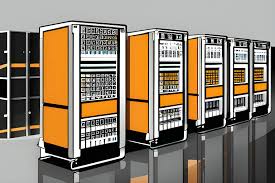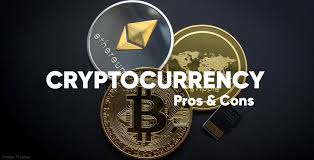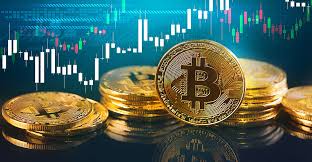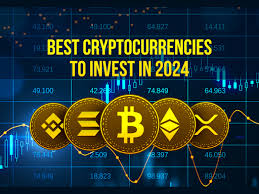HOW TO USE NFTS IN GAMING

Introduction
The integration of Non-Fungible Tokens (NFTs) into the gaming industry has created a paradigm shift, enabling gamers to truly own, trade, and monetize their in-game assets. Unlike traditional gaming, where assets are controlled by the game developers, NFTs provide players with verifiable ownership of digital items, characters, and even virtual real estate. This article delves into the use of NFTs in gaming, exploring their benefits, applications, and the transformative impact they are having on the industry.
Understanding NFTs in Gaming
- What are NFTs?
- Definition: NFTs are unique digital tokens that represent ownership of specific items or content. They are built on blockchain technology, which ensures the uniqueness and provenance of each token.
- Characteristics: Each NFT has distinct attributes and metadata that differentiate it from other tokens. This uniqueness makes them ideal for representing in-game assets like characters, weapons, and skins.
- How Do NFTs Work in Gaming?
- Blockchain Technology: NFTs are stored on a blockchain, providing a transparent and immutable ledger that records ownership and transaction history.
- Smart Contracts: Smart contracts automate the creation, transfer, and management of NFTs, ensuring that the terms of ownership and transactions are enforced without the need for intermediaries.
Benefits of NFTs in Gaming
- True Ownership
- Player Control: Unlike traditional in-game items that are controlled by the game developer, NFTs give players true ownership of their assets. Players can buy, sell, and trade these assets outside the game environment.
- Interoperability: NFTs can be used across multiple games and platforms, allowing players to transfer their assets between different virtual worlds and applications.
- Monetization
- Play-to-Earn Models: NFTs enable new business models where players can earn real-world money by playing games. For example, players can earn NFTs by completing in-game tasks and sell them on secondary markets.
- Secondary Markets: Players can trade their NFT assets on various online marketplaces, creating an economy where digital items have real value.
- Enhanced Gaming Experience
- Customization and Creativity: NFTs allow for greater customization of in-game items and characters. Players can create and own unique items that enhance their gaming experience.
- Community Engagement: NFTs can be used to foster a sense of community and belonging among players. Exclusive NFTs can be distributed as rewards for loyal players, creating a deeper connection between the game and its community.
Applications of NFTs in Gaming
- In-Game Items and Skins
- Digital Collectibles: Players can collect, trade, and own rare in-game items and skins that are represented as NFTs. These items can range from cosmetic enhancements to powerful weapons.
- Limited Editions: Developers can release limited edition items as NFTs, creating a sense of exclusivity and rarity that drives demand and engagement.
- Virtual Real Estate
- Virtual Worlds: In games like Decentraland and The Sandbox, players can buy, sell, and develop virtual land. These parcels of land are represented as NFTs, giving players ownership and control over their virtual property.
- Monetization Opportunities: Players can monetize their virtual real estate by building attractions, hosting events, or renting out their property to other players.
- Characters and Avatars
- Unique Characters: Players can own unique characters and avatars that are represented as NFTs. These characters can be customized and transferred between different games and platforms.
- Breeding and Evolution: In some games, players can breed and evolve their characters, creating new NFTs with unique attributes that can be sold or traded.
- Game Development and Funding
- Crowdfunding: Developers can use NFTs to raise funds for game development. By selling NFTs that represent in-game assets or early access, developers can generate revenue while involving the community in the development process.
- Community Ownership: NFTs can be used to give players a stake in the game’s success. Players who own certain NFTs might have voting rights or other forms of influence over the game’s future development.
Challenges and Considerations
- Environmental Impact
- Energy Consumption: The minting and trading of NFTs on blockchain platforms like Ethereum can be energy-intensive, raising concerns about their environmental impact.
- Sustainable Solutions: Developers are exploring more sustainable blockchain solutions, such as proof-of-stake mechanisms, to reduce the environmental footprint of NFTs.
- Market Speculation
- Volatility: The value of NFTs can be highly volatile, with prices subject to rapid fluctuations based on market demand and speculation.
- Bubble Risk: The rapid growth of the NFT market has led to concerns about a potential bubble. Investors and players should be cautious and conduct thorough research before investing in NFTs.
- Legal and Regulatory Issues
- Intellectual Property: The use of NFTs can raise questions about intellectual property rights and ownership. Developers and players must navigate complex legal frameworks to ensure compliance.
- Regulatory Uncertainty: The regulatory environment for NFTs is still evolving. Players and developers must stay informed about potential changes in regulations that could impact the use and value of NFTs.
Conclusion
The rise of NFTs in gaming represents a transformative shift in how players interact with digital assets. By enabling true ownership, monetization, and enhanced gaming experiences, NFTs are redefining the gaming landscape. However, players and developers must also navigate challenges such as environmental impact, market speculation, and regulatory issues. As technology and the market continue to evolve, NFTs are poised to play an increasingly significant role in the future of gaming, offering exciting opportunities for innovation and engagement.






